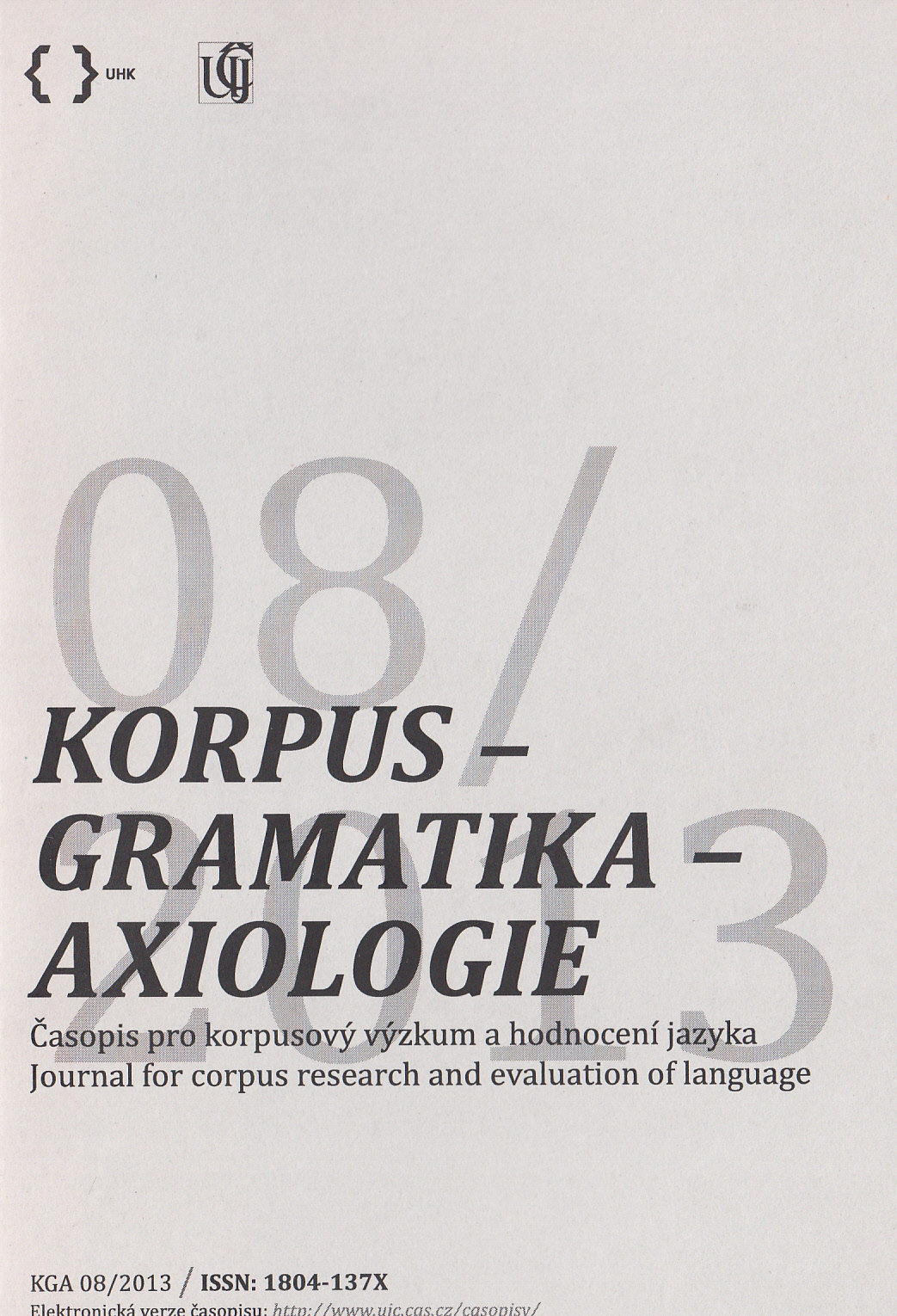Liší se mluvené a psané texty ve valenci?
Valency in spoken and written texts – is there a difference?
Author(s): Marie Mikulová, Jan Štěpánek, Zdeňka UrešováSubject(s): Language studies, Language and Literature Studies, Applied Linguistics, Syntax
Published by: AV ČR - Akademie věd České republiky - Ústav pro jazyk český
Keywords: Prague Dependency Treebank of Spoken Czech; spoken language; valency lexicon
Summary/Abstract: In this article, we introduce the Prague Dependency Treebank of Spoken Czech. The syntactic and semantic annotation of this corpus has led to the expansion of PDT-Vallex, a valency lexicon of Czech verbs, which has previously been linked only to the annotation of written texts. The expansion of the lexicon consisted of several steps: (i) new verbs were added to the lexicon; (ii) new meanings and new valency frames were added to verbs that had already been included in the lexicon; valency frames that had already been part of the lexicon were enriched with (iii) new participants (actants) and (iv) new formal realizations of participants (actants). All the above mentioned enrichments are (a) unmarked and based only on the addition of a new verb, a new meaning, a new participant (actant) or a new form, however, (b) some of them are influenced by the typical characteristics of spoken language. It would be almost impossible to find some of the verbs, some of the meanings, participants or forms in a written text. We believe that verbs in spoken language tend to exhibit different valency behavior than verbs in written texts. In this article we attempt to draw more general conclusions on the valency behavior of verbs in spoken language.
Journal: Korpus - gramatika - axiologie
- Issue Year: 2013
- Issue No: 8
- Page Range: 36-46
- Page Count: 11
- Language: Czech

